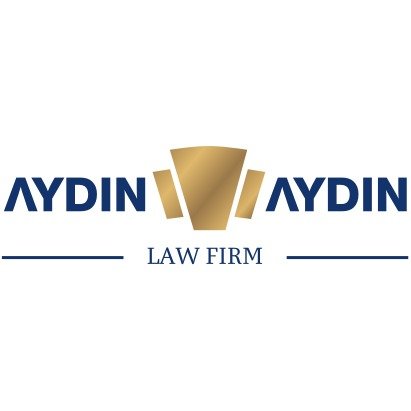Best Project Finance Lawyers in Turkey
Share your needs with us, get contacted by law firms.
Free. Takes 2 min.
Or refine your search by selecting a city:
List of the best lawyers in Turkey
Legal guides written by Tekin Law Firm:
- Arbitration in Turkey
About Project Finance Law in Turkey
Project finance is a specialized area of law and finance where large-scale infrastructure and industrial projects are funded through a structure that relies primarily on the project's future cash flow for repayment. In Turkey, project finance has seen rapid development, especially in areas such as energy, transportation, utilities, and healthcare. The legal framework in Turkey supports both local and international investors with several sophisticated financing techniques while regulating the rights and obligations of all parties involved. The complexity of these projects often requires navigating Turkish regulatory requirements, contractual arrangements, and risk allocations, making sound legal advice essential.
Why You May Need a Lawyer
Securing, developing, managing, and operating a project using project finance methods in Turkey involves several intricate legal processes. You may need a lawyer in the following situations:
- Negotiating and drafting finance and project agreements
- Conducting due diligence on collateral and regulatory compliance
- Understanding and applying for government permits and approvals
- Facilitating cross-border or foreign currency financing structures
- Managing risk allocation and dispute resolution clauses
- Ensuring compliance with local laws and international standards
- Advising on tax implications and incentives
- Dealing with syndications and multi-lender arrangements
- Navigating restructurings or refinancing scenarios
- Assisting in public-private partnership (PPP) project requirements
Local Laws Overview
Project finance in Turkey is governed by a mix of general commercial laws and specialized sector-specific regulations. Key aspects include:
- Turkish Commercial Code: Regulates company structures, contracts, and liabilities
- Banking Law and Capital Markets Law: Establishes requirements for lenders, security arrangements, and issuance of financial instruments
- Public Procurement Law: Controls public tenders and procurement, crucial for infrastructure projects
- Energy and Natural Resources Legislation: Regulates licensing and financing in energy, mining, and renewables
- PPP and BOT Frameworks: Sets out rules for public-private partnerships and Build-Operate-Transfer projects
- Foreign Direct Investment Law: Provides equal treatment for foreign investors and encourages FDI flows
- Environmental Regulations: Impose requirements for environmental impact and compliance
- Taxation Laws: Affect the fiscal structure and profitability of projects
- Collateral and Security Regulations: Address the taking and enforcement of security interests, such as mortgages and pledges
Frequently Asked Questions
What is project finance and how is it used in Turkey?
Project finance is a method of funding projects where repayment is secured by the project's cash flow and assets, rather than the borrower's balance sheet. In Turkey, it is popular for large infrastructure and energy projects.
What are the main sectors for project finance in Turkey?
Energy (including renewables), transportation (such as highways, airports, railways), healthcare, and utilities (water, waste) are the predominant sectors for project finance transactions in Turkey.
How do project finance deals differ from regular loans?
Project finance is non-recourse or limited recourse, meaning lenders primarily rely on the project assets and revenue streams for repayment, rather than the credit of project sponsors.
What government approvals are required for project finance?
Approvals vary by sector but typically include permits, licenses, public procurement clearance, and environmental impact assessments from relevant Turkish government agencies.
Can foreign investors participate in project finance in Turkey?
Yes, foreign investors are welcomed and treated equally under Turkish law. There are well-established regulations facilitating foreign investment and cross-border financing arrangements.
What collateral is commonly used in Turkish project finance?
Collateral commonly includes mortgages over land and buildings, pledges over company shares, project accounts, receivables, movables, and assignment of project rights.
Are there any incentives for investing in project finance projects in Turkey?
Yes, there are incentives such as tax benefits, customs duty exemptions, and special investment zones, particularly for strategic sectors and public-private partnerships.
How are risks managed and allocated in Turkish project finance?
Risks are typically allocated between project parties through carefully drafted contract provisions, including force majeure, political risk guarantees, and insurance arrangements.
What happens if a project encounters financial distress?
Turkish law provides for debt restructuring, refinancing, or bankruptcy processes. Early involvement of legal counsel is essential to protect all parties’ interests.
How long does it take to complete a project finance deal?
The timeline varies depending on project complexity, regulatory requirements, and negotiation processes. It can range from several months to over a year.
Additional Resources
If you need more information or wish to connect with a regulatory body or organization, you may consider the following:
- Republic of Turkey Ministry of Treasury and Finance - for laws, regulations, and incentives
- Turkish Energy Market Regulatory Authority (EMRA) - for energy sector regulations
- Banking Regulation and Supervision Agency (BDDK) - for banking and lending rules
- Investment Office of the Presidency of Turkey - for investment guidance and support
- Union of Chambers and Commodity Exchanges of Turkey (TOBB) - for business registration and sector representation
- International Finance Corporation (IFC) and European Bank for Reconstruction and Development (EBRD) - for project finance participation and resources
Next Steps
If you are considering a project or facing a legal question related to project finance in Turkey, the best course of action is to consult with a legal expert experienced in this field. Here are suggested steps:
- Define your project scope, objectives, and financial needs
- Collect all relevant documents and information about the project and parties involved
- Research and shortlist reputable law firms or lawyers with project finance experience in Turkey
- Arrange a consultation to discuss your specific legal requirements and potential risks
- Request a detailed proposal for legal services, timelines, and costs
- Work closely with your adviser throughout the negotiation, structuring, and documentation phases of your project
Legal guidance can not only help you comply with Turkish laws and regulations but also optimize contracts, attract investment, and manage project risks more effectively. Taking early legal advice is crucial for the success of your project finance transaction in Turkey.
Lawzana helps you find the best lawyers and law firms in Turkey through a curated and pre-screened list of qualified legal professionals. Our platform offers rankings and detailed profiles of attorneys and law firms, allowing you to compare based on practice areas, including Project Finance, experience, and client feedback.
Each profile includes a description of the firm's areas of practice, client reviews, team members and partners, year of establishment, spoken languages, office locations, contact information, social media presence, and any published articles or resources. Most firms on our platform speak English and are experienced in both local and international legal matters.
Get a quote from top-rated law firms in Turkey — quickly, securely, and without unnecessary hassle.
Disclaimer:
The information provided on this page is for general informational purposes only and does not constitute legal advice. While we strive to ensure the accuracy and relevance of the content, legal information may change over time, and interpretations of the law can vary. You should always consult with a qualified legal professional for advice specific to your situation.
We disclaim all liability for actions taken or not taken based on the content of this page. If you believe any information is incorrect or outdated, please contact us, and we will review and update it where appropriate.
Browse project finance law firms by city in Turkey
Refine your search by selecting a city.
















